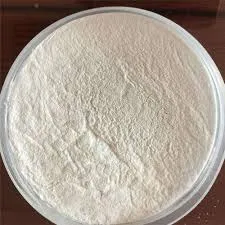
Lap . 06, 2024 23:20 Back to list
hpmc uses
The Uses of HPMC A Versatile Polymer with Diverse Applications
Hydroxypropyl Methylcellulose (HPMC) is a semicrystalline, non-ionic cellulose ether derived from natural cellulose. It serves a range of purposes across various industries because of its unique properties such as water solubility, emulsification, film-forming ability, and thickening capabilities. This versatile polymer is used extensively in pharmaceuticals, construction, food, and cosmetics, among other fields.
Pharmaceutical Applications
In the pharmaceutical industry, HPMC is commonly employed as an excipient in drug formulations. Its ability to form gels and films makes it an ideal candidate for controlled-release drug delivery systems. HPMC helps in regulating the release of drugs from tablets and capsules, ensuring that therapeutic effects occur over an extended period. Furthermore, its non-toxic nature and compatibility with a wide range of active pharmaceutical ingredients enhance its attractiveness for use in various medicinal applications. HPMC is also utilized in ophthalmic solutions due to its lubricating properties, which provide comfort and protection for the eyes.
Construction Industry
In the realm of construction, HPMC plays a crucial role as a thickening agent and binder in mortars, plaster, and adhesives. Its water-retaining properties improve the workability and adhesion of materials, thereby ensuring better application and performance. HPMC is especially valued in tile adhesives, where it helps maintain moisture levels during the curing process, leading to stronger bonds between tiles and surfaces. Additionally, this polymer’s ease of use makes it a favorable choice for formulators looking to enhance the performance of construction materials.
hpmc uses

Food Industry
The food industry also takes advantage of HPMC's properties. It is commonly used as a food additive for stabilizing emulsions, thickening sauces, and improving the texture of baked goods. Moreover, HPMC is recognized for its ability to extend the shelf life of products by acting as a moisture barrier, which helps in reducing spoilage. Its inert nature ensures that it does not alter the flavor or color of food products, making it an ideal additive for a variety of culinary applications.
Cosmetic Industry
In cosmetics, HPMC is renowned for its film-forming and emulsifying qualities, making it a popular ingredient in lotions, creams, and make-up products. It helps stabilize formulations, improving the texture and consistency of cosmetic products. HPMC’s hydrophilic nature attracts moisture, enhancing skin hydration and providing a pleasant feel upon application. Additionally, its thickening properties help in achieving the desired viscosity in various cosmetic formulations.
Conclusion
HPMC is a remarkable polymer with a multitude of uses across various industries. Its versatility is rooted in its unique chemical properties, which allow it to function as a thickening agent, emulsifier, and stabilizer. From improving drug formulations in the pharmaceutical sector to enhancing the texture of foods and cosmetics, HPMC stands out as a valuable ingredient. As industries continue to evolve, the demand for HPMC is likely to grow, promoting innovation and expanding its applications even further. Ultimately, HPMC exemplifies how a single substance can have profound effects across diverse fields, thus reinforcing its status as an indispensable material.
-
Versatile Hpmc Uses in Different Industries
NewsJun.19,2025
-
Redispersible Powder's Role in Enhancing Durability of Construction Products
NewsJun.19,2025
-
Hydroxyethyl Cellulose Applications Driving Green Industrial Processes
NewsJun.19,2025
-
Exploring Different Redispersible Polymer Powder
NewsJun.19,2025
-
Choosing the Right Mortar Bonding Agent
NewsJun.19,2025
-
Applications and Significance of China Hpmc in Modern Industries
NewsJun.19,2025







